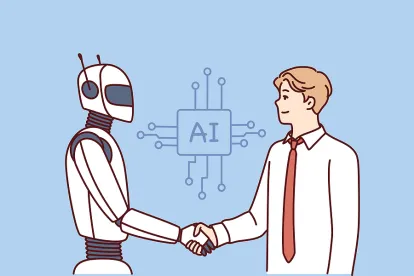Recent developments in Artificial Intelligence (AI) have been transforming several sectors, and the healthcare industry is no exception. In the second episode of Sheppard Mullin’s Health-e Law Podcast, Jim Gatto, a partner at Sheppard Mullin and the co-leader of its AI Team, explores the significant implications and challenges of incorporating AI into the healthcare industry with Sheppard Mullin’s Digital Health Team co-chairs, Sara Shanti and Phil Kim.
Expansion of AI in Healthcare
At its core, AI involves the use of data, computers, and algorithms to mimic aspects of human intelligence. The progression from a rules-driven AI to the less artificial and more intelligent variations available today signifies a paradigm shift in the way we leverage technology. This shift is the likely result of the intersection of enhanced computing systems, the availability of a wealth of data, and advanced algorithms.
AI is certain to make a significant impact in the healthcare industry, touching everything from administrative tasks to complex diagnosis and treatment processes. In particular, AI will likely drive efficiencies in healthcare operations by supplementing professionals rather than replacing them, such as by identifying unknown or unnoticed connections in healthcare data to render higher quality care. Radiology, as an example, can leverage AI to improve the accuracy of x-rays or other imaging interpretations by recognizing identifiers or abnormalities which a professional might miss. It is important to note that this technology supplements the work of radiologists rather than replacing them, which is likely to be the trend in other areas of healthcare as well.
Despite its potential benefits, AI still faces a number of challenges. For example, AI programs often produce inaccurate results or experience “hallucinations” which are AI-generated responses which contain false or misleading information. As a result, AI will likely not completely replace professionals in the near future and a blend of AI and human intelligence will be crucial for significant decisions, especially in the healthcare sector.
Legal Perspectives
Use of AI in the healthcare space faces a host of potential legal issues. Data usage sits high on the list, given that AI technologies are data hungry and ordinarily rely on extensive information for learning and training purposes. The data in question can often include medical and other personal information which is protected by a host of authorities, such as HIPAA and state privacy laws. Complying with those many authorities and securing rights to use the data for training AI models will be critical, as will be taking steps to ensure the quality and accuracy of the data used to train AI models to prevent potential legal repercussions.
Moreover, AI may unknowingly contribute to bias and discrimination depending on the data pool used to train the particular AI technology. As a result, ensuring a representative dataset is essential to preventing biased results or discriminatory impacts.
Separately, the distinct operations of AI tools are subject to varying terms of use. It is therefore critical that the corresponding uses of data containing confidential information conform to the applicable terms of use. This is particularly true as issues may arise where there is variance between the terms of use and the actual data use, particularly where such use is inconsistent with public representations which may lead to claims of deceptive trade practices.
Finally, intellectual property issues also feature prominently in the AI space as there are growing concerns around infringement related to both the training of data and the outputs of AI.
The Bottom Line
While AI’s potential role in the healthcare space is tremendous, AI will face a broad range of practical, legal, and ethical hurdles. It will be more important than ever to carefully navigate those hurdles, particularly in the highly regulated healthcare industry.
To listen to the full episode, click here.





 />i
/>i

